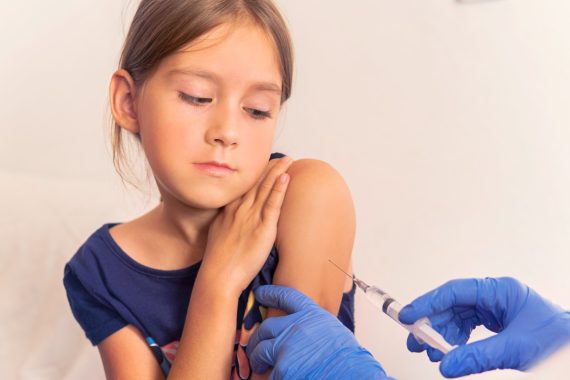Government vaccine advisers recommend move to one-dose HPV jab

The Joint Committee on Vaccination and Immunisation (JCVI) has recommended moving to a one-dose schedule of HPV vaccination after reviewing ‘compelling evidence’.
A single-dose schedule should free up funding and resources that can be deployed to strengthen the adolescent immunisation programmes and should simplify the vaccine schedule, the JCVI said in the interim advice that is now out for consultation.
The move has been under review for some time but advisors needed to see more data on the effectiveness of a single dose of the 9-valent vaccine, which the UK is due to switch to this year, because of increased protection against five more cancer-causing HPV subtypes.
A one-dose option is likely to be more acceptable but this also has to be weighed with potentially reducing chances for catch-up in those teenagers who missed out on their HPV vaccine due to the pandemic, the committee said.
Some of the resources saved by a single-dose schedule should be re-directed to interventions that strengthen programme delivery and increase coverage rate, it said.
‘As the UK programme was moving to using the 9-valent vaccine, reassurance was needed that this vaccine would have similar characteristics when used as a single dose.
‘The committee now has these reassurances in the data for the 9-valent vaccine which indicate that a one-dose schedule for the is likely to offer high efficacy against all the included types just like the 2 other vaccines,’ the JCVI concluded.
‘The committee is of the view that the level of evidence for a move to a single dose is compelling and is at a similar if not greater level (as it includes efficacy data) to that supporting the move from 3 to 2 doses which was previously advised.’
The change in the schedule from two doses of HPV vaccine to one dose will apply to the routine adolescent programme for children aged up to (and including) 14 years of age.
Analysis shows that the 9-valent vaccine should protect against >90% of the cervical cancers caused by the HPV high risk types, an increase from the 70 to 80% of cervical cancers that the bivalent and quadrivalent vaccines protect against.
‘Current efforts are focused on the ongoing catch-up of those adolescents who have missed their first or second dose due to the interruptions to the schools’ immunisation programme by the pandemic,’ the committee said.
‘Sufficient lead in time will be required to plan and operationalise the transition to a one-dose schedule in the adolescent programme by NHS England and the devolved administrations.’
Click to complete relevant sexual health CPD modules on Pulse learning.
Visit Pulse Reference for details on 140 symptoms, including easily searchable symptoms and categories, offering you a free platform to check symptoms and receive potential diagnoses during consultations.









